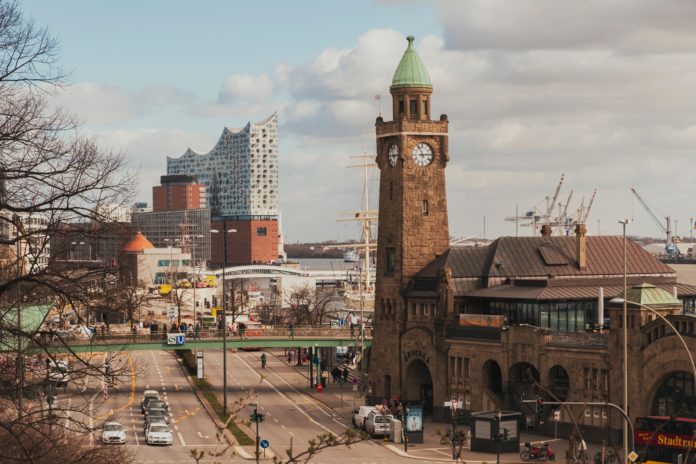Germany’s second-largest city is finding its place on the startup map. Listed on Lonely Planet’s “Top 10 cities” in 2018, the maritime city is more than just a cool tourist destination, and has a lot to offer entrepreneurs. With top-notch events, 36 higher education institutions, +60 innovative coworkings and means of funding, the perks for founders are growing by the day.
Here are 10 local startups making a name for themselves in 2020.
 Airfocus – If you were thinking how Nike, The Washington Post or Shell prioritize their projects and keep everyone on the same side, ask Airfocus. Airfocus’ goal is to help companies around the world make better decisions with their software tool for an objective, data-driven prioritization and effective roadmap planning. Founded in 2018, Airfocus seamlessly connects higher-level planning with day-to-day task management and in November 2019 it received a seed round of €1.7 million to do the same, just better.
Airfocus – If you were thinking how Nike, The Washington Post or Shell prioritize their projects and keep everyone on the same side, ask Airfocus. Airfocus’ goal is to help companies around the world make better decisions with their software tool for an objective, data-driven prioritization and effective roadmap planning. Founded in 2018, Airfocus seamlessly connects higher-level planning with day-to-day task management and in November 2019 it received a seed round of €1.7 million to do the same, just better.
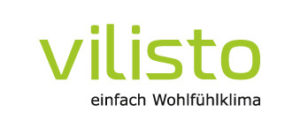 Vilisto – Vilisto’s flagship product is an intelligent, self-learning and fully automatic heating thermostat for non-residential buildings, with proven savings of more than 32%. The digital heat management solution is based on thermostats with integrated presence detection, learning algorithms and room climate sensors, providing customers an insight into the heating behaviour of their buildings. The energy startup, founded in 2016 and supported by KIC InnoEnergy, is solving the office energy consumption problem.
Vilisto – Vilisto’s flagship product is an intelligent, self-learning and fully automatic heating thermostat for non-residential buildings, with proven savings of more than 32%. The digital heat management solution is based on thermostats with integrated presence detection, learning algorithms and room climate sensors, providing customers an insight into the heating behaviour of their buildings. The energy startup, founded in 2016 and supported by KIC InnoEnergy, is solving the office energy consumption problem.
 Tomorrow – This fintech is merging the topics of “Mobile Banking” and “Sustainable Finance” into a new financial product, the first mobile current account with sustainability in mind. Yes, users can follow account movements within seconds in the app and money can be transferred in real-time, but this time with every payment made users can help a social business, a climate change initiative or a renewable energy project. Founded in 2017, Tomorrow is introducing Green Finance to the world.
Tomorrow – This fintech is merging the topics of “Mobile Banking” and “Sustainable Finance” into a new financial product, the first mobile current account with sustainability in mind. Yes, users can follow account movements within seconds in the app and money can be transferred in real-time, but this time with every payment made users can help a social business, a climate change initiative or a renewable energy project. Founded in 2017, Tomorrow is introducing Green Finance to the world.
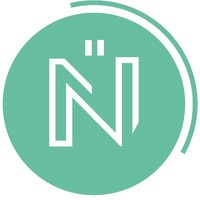 Nuwiel – Nuwiel is addressing the need for safe, convenient and sustainable mobility solutions. The e-powered, emission-free bike trailer is based on sensor technology and knows exactly when to accelerate, decelerate and brake. Transporting up to 150kg, it is perfect for package delivery companies, food retailers and individuals. One Nuwiel-trailer running 72km a day substitutes 6,300km of car use and saves 2,000 tonnes of CO2 emissions per year. Founded in 2015, last year it received H2020 funding, won the Smart Pedal Pitch Dublin, most innovative startup at Parcel+Post Expo, and the Digital Logistics Award, as well as partnered with mobility startup Dott.
Nuwiel – Nuwiel is addressing the need for safe, convenient and sustainable mobility solutions. The e-powered, emission-free bike trailer is based on sensor technology and knows exactly when to accelerate, decelerate and brake. Transporting up to 150kg, it is perfect for package delivery companies, food retailers and individuals. One Nuwiel-trailer running 72km a day substitutes 6,300km of car use and saves 2,000 tonnes of CO2 emissions per year. Founded in 2015, last year it received H2020 funding, won the Smart Pedal Pitch Dublin, most innovative startup at Parcel+Post Expo, and the Digital Logistics Award, as well as partnered with mobility startup Dott.
 Bio-lutions – Bio-lutions is a cleantech startup developing ecological packaging and disposable tableware made from agricultural residue. Their packaging is based on a patented technology using agricultural waste as raw material, without additional binders or chemicals. Founded in 2017, the startup is committed to fighting plastic pollution, while also providing farmers an additional source of income. Backed by an €8.3 million investment in 2019 from Delivery Hero, Bio-lutions hopes to reach new markets.
Bio-lutions – Bio-lutions is a cleantech startup developing ecological packaging and disposable tableware made from agricultural residue. Their packaging is based on a patented technology using agricultural waste as raw material, without additional binders or chemicals. Founded in 2017, the startup is committed to fighting plastic pollution, while also providing farmers an additional source of income. Backed by an €8.3 million investment in 2019 from Delivery Hero, Bio-lutions hopes to reach new markets.
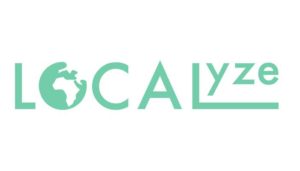 Localyze – Founded in 2018, Localyze aims to facilitate relocation support for companies and individuals. The startup offers a software solution for relocation management, covering a range of topics from visa arrangements, insurance policies, housing options to cultural integration. The software automates the processes and provides a platform that contains all relevant information and documents in one place. In 2019, the startup were selected for the Y Combinator and as winner of the Digital Business and Government category at South Summit, and in 2020 have already been chosen for the German Accelerator.
Localyze – Founded in 2018, Localyze aims to facilitate relocation support for companies and individuals. The startup offers a software solution for relocation management, covering a range of topics from visa arrangements, insurance policies, housing options to cultural integration. The software automates the processes and provides a platform that contains all relevant information and documents in one place. In 2019, the startup were selected for the Y Combinator and as winner of the Digital Business and Government category at South Summit, and in 2020 have already been chosen for the German Accelerator.
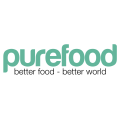 Purefood – Purefood, founded in 2014, manages both Lycka and Stark, which combine social commitment and organic food (icecreams, granola, protein powders and cold brew). Inspired by the motto “good foods do good”, for every product sold, Lycka provides a warm lunch for a school child in Burundi, and Stark (together with partner Welthungerhilfe), supports school football as an anti-conflict measure in the Central African Republic. In 2019, the startup received €3 million seed funding from the Oyster Bay food guide and acquired Teatox.
Purefood – Purefood, founded in 2014, manages both Lycka and Stark, which combine social commitment and organic food (icecreams, granola, protein powders and cold brew). Inspired by the motto “good foods do good”, for every product sold, Lycka provides a warm lunch for a school child in Burundi, and Stark (together with partner Welthungerhilfe), supports school football as an anti-conflict measure in the Central African Republic. In 2019, the startup received €3 million seed funding from the Oyster Bay food guide and acquired Teatox.
![]() Aiconix.ai – Aiconix is an AI-driven video platform. Why are some videos seen and others not? Finding a technical solution to this problem led to the idea of Aiconix. The team use their expertise in film, neuroinformatics and AI to understand how user behaviour correlates with the content, to market it better. In 2019, the startup was featured in the top 30 AI start-ups in the German edition of Forbes, and €300K seed funding from angel investors Matthias Fricke, Christoph Birkel, Manfred Garz.
Aiconix.ai – Aiconix is an AI-driven video platform. Why are some videos seen and others not? Finding a technical solution to this problem led to the idea of Aiconix. The team use their expertise in film, neuroinformatics and AI to understand how user behaviour correlates with the content, to market it better. In 2019, the startup was featured in the top 30 AI start-ups in the German edition of Forbes, and €300K seed funding from angel investors Matthias Fricke, Christoph Birkel, Manfred Garz.
 MateCrate – MateCrate is an eSports startup, which started as an app bringing together e-athletes of all performance classes. It has since grown into a German amateur League of Legends (a multiplayer online game) league called City Masters. The founder Sebastian Kuch, himself a League of Legends player, has been working on a city championship since 2017, which should enable e-sportspeople to have a structured competition. In 2019, the startup attracted €1.4 million investment, to make this a reality.
MateCrate – MateCrate is an eSports startup, which started as an app bringing together e-athletes of all performance classes. It has since grown into a German amateur League of Legends (a multiplayer online game) league called City Masters. The founder Sebastian Kuch, himself a League of Legends player, has been working on a city championship since 2017, which should enable e-sportspeople to have a structured competition. In 2019, the startup attracted €1.4 million investment, to make this a reality.
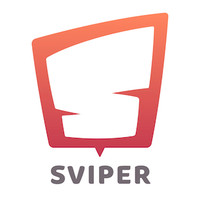 Sviper – Sviper is a mobile gaming studio founded by Ole Schaper, Mark Buchholz and Michael Reichert in 2016. Sviper is set out to deliver outstanding gameplay experiences in the highest quality for mobile devices and has so far released a few games, the latest one being Super Spell Heroes, a real-time 1-vs.-1 puzzle duel game. In 2019 the studio received a €2.5 million from Modern Times Group and its existing shareholders for future growth.
Sviper – Sviper is a mobile gaming studio founded by Ole Schaper, Mark Buchholz and Michael Reichert in 2016. Sviper is set out to deliver outstanding gameplay experiences in the highest quality for mobile devices and has so far released a few games, the latest one being Super Spell Heroes, a real-time 1-vs.-1 puzzle duel game. In 2019 the studio received a €2.5 million from Modern Times Group and its existing shareholders for future growth.
By the way: If you’re a corporate or investor looking for exciting startups in a specific market for a potential investment or acquisition, check out our Startup Sourcing Service!



